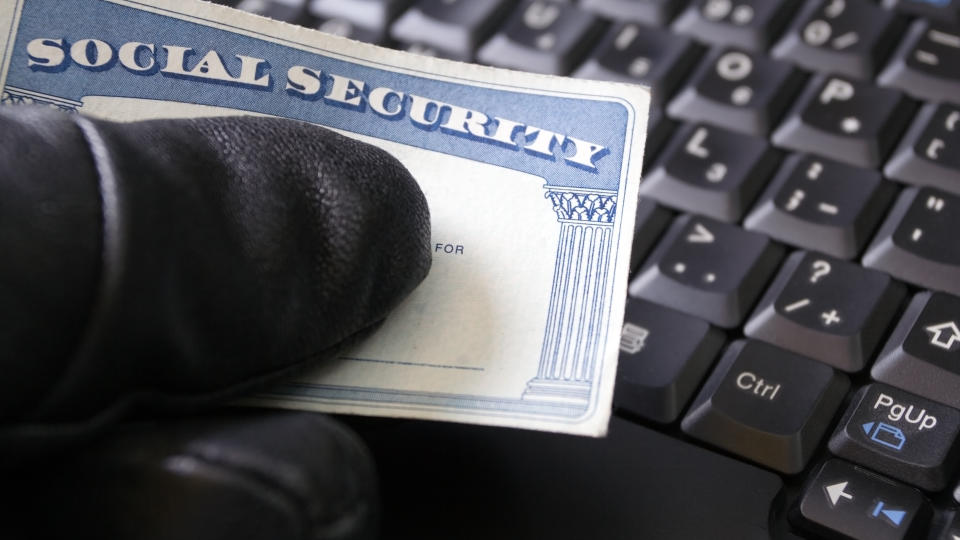Was Your Social Security Number Stolen? Here’s Why You Shouldn’t Get a New SSN

Financial fraud takes many forms, from fake charities that bilk you out of a few dollars to identity theft that can wipe out your entire savings. About four in 10 Americans have been victims of some kind of financial scam or identity theft, according to a survey from GOBankingRates. More than one-third have lost at least $1,000 from scams, and nearly 17% were victims of a Social Security scam.
Social Security: COLA Is Set To Dramatically Decrease in 2024 and 25% of Seniors Don’t Know What That Means for Them
Learn: 3 Simple Steps You Must Take To Shield Yourself from Identity Theft
The latter often involves someone stealing your Social Security number and then using it to create all kinds of financial havoc — including opening credit cards and other accounts in your name, claiming your tax refund and draining your bank account.
If you believe your Social Security number was stolen, there are several steps you should take to protect yourself. The first is to report it to the Federal Trade Commission and local police, according to a blog on the Avast website. Go to the FTC’s identitytheft.gov site and click “Get Started,” then enter the relevant information. You should also call the Social Security fraud hotline at 800-269-0271.
One thing you should not do is apply for a new SSN, according to the State of California Department of Justice. It might be tempting to change the number immediately, but the Social Security Administration “rarely allows this,” the California DOJ wrote in a blog.
The main drawbacks of getting a new number include losing your credit history, academic records and professional degrees. With no credit history, it will be hard to get new credit, open a bank account or rent a home.
Discover: Here’s What the Average Social Security Payment Will Be in Fall 2023
In the event that your number is stolen, the SSA recommends taking these steps in addition to contacting the FTC and your local police:
Review the earnings posted to your SSA record on your Social Security Statement and report any inconsistencies to the agency.
Contact the IRS at 800-908-4490 or visit it online if you believe someone is using your SSN to work or get your tax refund.
Order free credit reports from the three major credit bureaus (Equifax, Experian, and TransUnion). You can make a single request for all three credit bureau reports at Annual Credit Report Request Form or by calling 877-322-8228. Avast also recommends putting a fraud alert or security freeze on your credit reports.
Because your Social Security number provides a window into so many aspects of your life, you should take every precaution to protect it. Here are some ways to do that:
Never carry your Social Security card with you.
Limit the use of your Social Security number only to essential matters such as filing taxes, applying for loans with legitimate financial institutions or applying for essential services such as utilities.
Never give your whole SSN to anyone you don’t know or trust. When a business or bank asks for it, vet it carefully first.
Check your financial accounts and credit reports regularly to see if there is anything suspicious.
Destroy paperwork that has your SSN on it. If you must keep documents, store them in a safe.
More From GOBankingRates
This article originally appeared on GOBankingRates.com: Was Your Social Security Number Stolen? Here’s Why You Shouldn’t Get a New SSN
